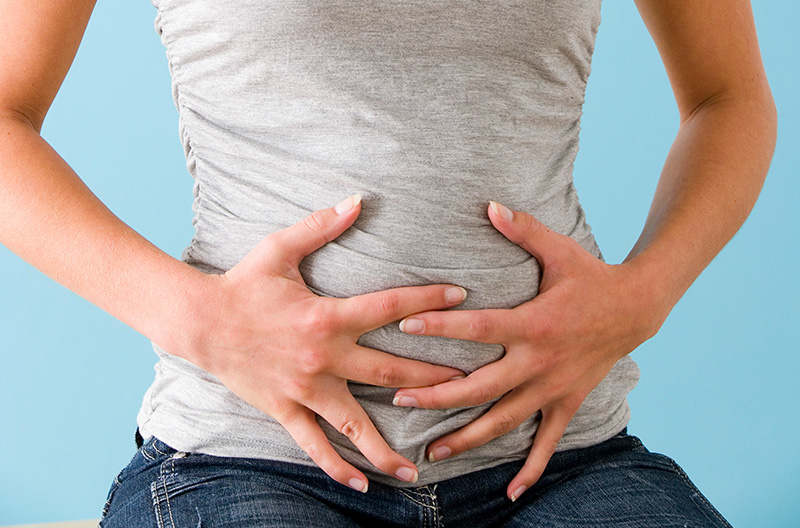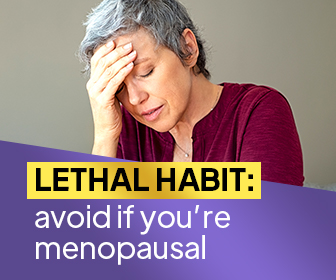You’re familiar with bloating – that lumbering, sluggish, puffy feeling where you know you’ve eaten badly or become dehydrated. Bloating is a common problem, but you probably haven’t given it much thought, despite how much of a problem chronic bloating can be – or the severity of the conditions it is a sign of. The reality is that bloating is a complex and important digestive phenomenon and requires more attention than you might normally pay it.
There are some significant differences between the different types of bloating you might experience, and we’re going to cover the most important ones as well as how to tell the difference. This article will cover the different causes behind bloating and why you need to be careful to watch for the signs of bloating. You will also learn how to get rid of bloating, so you don’t need to put up with this pesky problem any more.
Disclaimer: Is Your Bloating Dangerous?
The first thing you need to establish about your bloating is whether or not it poses a real medical threat to your health. Bloating can be the result of a number of serious health conditions, as well as lifestyle choices.
While this article is going to focus mainly on the lifestyle-based factors for bloating, it is important to note that chronic, painful, or worsening bloating are all signs that you should consult your healthcare professional.
This type of chronic, painful bloating can signal for some of the most severe digestive health problems that face Americans today. From Irritable Bowel Syndrome (IBS) to ulcerative colitis or non-specific stomach/intestinal disorders, bloating can be a real problem when it signals for these kinds of problems. Lifestyle factors (like those discussed below) can mitigate the severity of these conditions, but they are not going to be treated by simply changing your diet and lifestyle. This is why we recommend immediately consulting your healthcare professional if:
- Bloating persists for more than a few days
- Bloating persists despite all lifestyle factors being optimal
- Pain and discomfort are associated with bloating
- Sharp pains are felt when pressing on the abdomen
- Any digestive processes are triggered (such as vomiting, chronic diarrhea, or bile-tinted stool)
- You feel in any way debilitated or worried about your symptoms
- Symptoms are becoming worse, rather than better, after a few days
It is never worth gambling with your health, so if any of these symptoms sound familiar be sure to contact a medical professional for a diagnosis. If these are not the case, you may be able to deal with your own bloating through a variety of tried-and-tested lifestyle adjustments.
What is Bloating?
Bloating simply refers to a variety of conditions where the abdominal area and surrounding tissues are uncomfortable, expanded, or feel abnormally heavy/inflamed/prominent.
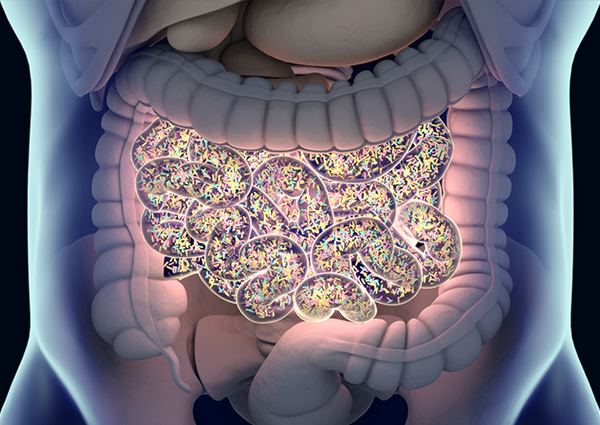
There are a number of causes of bloating, and some of these types of bloating are very different, but they all feel very similar and this is the real concern for anyone that is experiencing bloating. Bloating is profoundly uncomfortable, but can also make you feel insecure or engender negative body-perceptions.
The overall approach to non-medical cases of bloating (those that aren’t caused by more severe medical conditions) are relatively similar. They will focus on the things that you can change, how you can do so, and what best practices you can put in place to make the most of your health and protect yourself from future instances of bloating.
What Causes Bloating? 8 Possible Reasons
1. Salt
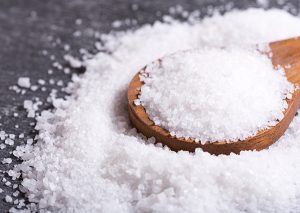
The balance of sodium to potassium in your body is a big factor in your retention of fluids. A good balance of these two minerals is essential to maintain proper health and hydration, but an excessive sodium intake is a quick way to store extra water and cause serious feelings of bloating. Too much sodium is also a route towards hypertension and heart problems, so balancing the sodium and potassium in your diet is a great way to stay healthy and reduce bloating[1].
2. Too Much Food
Eating too much in general is an easy way to cause bloating. This may be obvious, but the more food you eat, the more strain will be placed on your stomach. Your stomach has a relatively-stable drainage rate, and eating more food than you can reasonably digest is going to push the walls of the stomach to their max, creating an “over-full” sensation. The obvious way to reduce this is to eat less.
Bloating is also a risk if you simply eat too quickly. If you’re eating faster than your body can drain the food from the stomach, it is possible to cause bloating. In this case, you should reduce the speed of eating (as simple as reducing the size of each fork-full) and focus on chewing well. Be sure to drink plenty of water (or other healthy fluids) with your meal, as this will aid in the digestion of food, improve drainage rates, and reduce overall water retention.
3. Too Much Fiber?
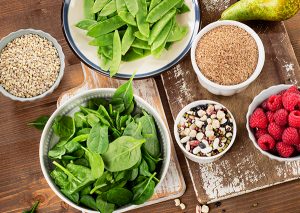
It is rare, but there are cases where the main cause of bloating is an excessive intake of dietary fiber. The real problem with an excessive fiber intake is that certain types of fiber (known as soluble fiber) bind to water in the digestive system and can expand in size, causing a slow, uncomfortable digestive process[2]. These types of fiber are rarely consumed in excess, and are usually very healthy, but eating too many may cause bloating.
The breakdown of high-fiber foods in the intestine can also cause wind-related bloating. Certain foods, such as legumes (beans, especially) and cruciferous vegetables (such as broccoli) will break down in the digestive tract, producing a great deal of gas. This gas can contribute to expansion of the intestines, which may feel like bloating or “trapped wind”.
4. Fatty Foods
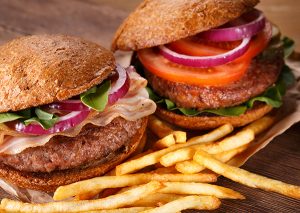
Fatty foods are very dense compared to their high-fiber counterparts. These foods are not likely to cause bloating in the same way as leafy vegetables, but they can have an equally uncomfortable effect. The density of high-fat foods (such as oils, fried foods, and high-fat dairy products like ice cream) places a relatively large amount of stress on the digestive system. These foods are heavy and slow to digest, making them slower to travel through the stomach and intestines. Eating too much of these foods is very easy, and the combination of their tendency to bloat and their calorie-density makes them a risky choice for many dieters.
5. Being Overweight or Obese

Being obese or overweight is unhealthy, but you already knew that. However, the increased bodyfat associated with these conditions makes it very easy to feel bloated more often, even constantly. Water retention occurs in the fat cells of the body – these fat stores can expand massively when excess water and sodium are in the body.
Reducing bodyfat also reduces the build-up of ‘visceral’ fat. This type of fat surrounds the internal organs and applies pressure to them, including the stomach. This can contribute to more serious problems but also to the prevalence of bloating. If you are obese or overweight, losing bodyfat through an effective diet and active lifestyle should be your priority: you’ll also find that bloating symptoms decrease.
6. Poor Gut Health
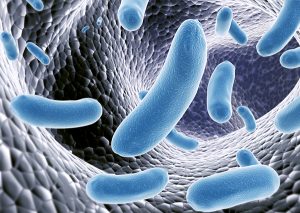
Gut health has been something of a buzzword lately, but the health of your digestive system is a big deal for starting a diet effectively. The condition of your gut is a serious player in diet efficiency and wellbeing, but also plays a large role in the way that your body processes nutrients and can be used to actively combat junk food cravings[3].
Gut health, the health of the microbiome inside your intestines, is a great way to combat bloating. Poor gut health can result in digestive tract inflammation and may present a serious problem for your overall health and wellbeing. Focusing on gut health through a combination of whole foods, high-quality plant-based foods, and the reduction of highly-processed or “junk” foods is a great way to combat these problems and boost your overall health.
7. Intolerance or Sensitivity

One of the most common yet underdiagnosed causes for bloating is a sensitivity or intolerance to certain foods. We strongly advise against self-diagnosis, but certain foods are regularly to blame for a bout of severe acute bloating. Despite the rise of “fad” intolerances (primarily surrounding gluten), there are many people with undiagnosed intolerances and sensitivities – if you suspect you might have an intolerance, consult a dietitian or try an elimination diet to see if you can reduce your overall bloating symptoms.
8. Air: Bloating, Flatulence, and Breathing

You might not have considered it, but the way that you eat your food and drink your beverages can contribute to bloating, flatulence, and digestive discomfort. Something as simple as drinking your beverages through a straw can contribute to increased retention of air and carbon dioxide in the stomach and digestive tract, which contributes to both bloating and flatulence. Reducing your intake of carbonated drinks, especially sodas, is a great way to boost your health and reduce the risk of developing “trapped wind” bloating.
How to Get Rid of Bloating
The cause of your bloating is always the best place to start – if you already know why you’re experiencing these symptoms, the best thing to do is avoid that particular trigger and improve your lifestyle around it. For example, if you know that you eat too much food, too quickly, then simply adjusting your eating behavior is a great way to prevent future bloating and restore digestive health.
There are some foods that may trigger bloating in general: beans, broccoli, onions, cauliflower, sprouts, cabbage, and other dark leafy vegetables. These are all great for your health, however, and should be treated with moderation rather than completely removing them from your diet. Aim to moderate your intake of these foods, spacing them across your daily meals rather than consuming them all in high volume in a single sitting.
Increasing your water intake is a great way to improve your health and combat bloating. Increasing your water intake is often as simple as having a bottle of water with you throughout the day, especially during meal times. Reducing the speed of eating is easy when you are drinking water to break up the meal.
Active Lifestyle and Bloating
Cardiovascular or endurance exercises are a great way of reducing bloating. Not only do these exercises increase the overall rate of drainage through the stomach once you return to rest, but they can decrease the retention of water in subcutaneous fat by causing you to sweat.

You should already know the benefits of cardio exercise, but among these fantastic benefits are increased fat-burning potential and improved function of the heart and lungs. Overall, cardiovascular exercise is a great way to combat many of the causes of bloating, and improve health universally.
Low-Intensity Steady State cardio (LISS) is a gentler form of cardiovascular exercise that is appropriate for reducing the symptoms and experience of bloating. LISS often involves exercise like walking or gentle cycling – low-intensity exercise that allows for improved wellbeing. This is a much easier, more palatable form of exercise when you’re experiencing bloating – you don’t want to perform intense exercise, but a gentle walk in nature is a great way to boost digestion, improve relaxation, and combat bloating symptoms.
For bloating that is associated with poor breathing control, exercise like Yoga which forces a conscious effort into proper breathing control can be beneficial. As ever, you should approach this type of exercise in a way that benefits your goals, but the large focus placed on diaphragm control in yoga can benefit your overall breathing patterns. Proper breathing is a great way to improve your health and can contribute to protection from breathing-induced trapped air and bloating.
For any healthy adult, bloating should only ever be a problem in response to a large quantity of food or food that is particularly likely to break down into fiber, fats, and gaseous bodies in the stomach. If you’re experiencing chronic bloating and don’t have a pre-condition that would cause it, your lifestyle and diet need to be assessed. It is likely that your diet and eating habits are the main cause of your bloating. This may sound harsh, but it puts you in a position to easily fix the discomfort and other symptoms of bloating by simply changing your diet and lifestyle.
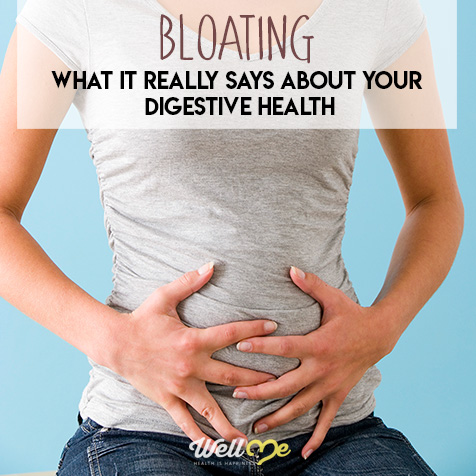
Following the tips above, you should be able to completely change your dietary experience and the way that bloating affects you. If you change all of these variables and the problem still persists, be sure to go to your relevant medical professional with your concerns – the conditions that contribute to bloating can be very severe and sometimes a medical intervention is a better decision. Otherwise, improving your structural health, diet, exercise, and breathing control, can make a huge difference to your life.
Action Steps: 5 Tips to Reduce Bloating
- Contact your medical professional to ensure that your bloating isn’t rooted in a more severe condition.
- Reduce your intake of fatty or sugary foods, moderate your intake of possible trigger foods, and consult a dietitian if you suspect an intolerance.
- Eat your food more slowly, with extra time for water.
- Increase your cardiovascular exercise.
- Be sure to practice effective, mindful breathing – either through Yoga or active breathing techniques.
References
- [1] Holbrook, J. T., et al. “Sodium and potassium intake and balance in adults consuming self-selected diets.” The American journal of clinical nutrition 40.4 (1984): 786-793. <http://ajcn.nutrition.org/content/40/4/786.short>
- [2] Stephen, Alison M., and John H. Cummings. “Mechanism of action of dietary fibre in the human colon.” Nature 1980, 284.5753): 283-284. <https://www.nature.com/nature/journal/v284/n5753/abs/284283a0.html>
- [3] Turnbaugh, Peter J., et al. “The effect of diet on the human gut microbiome: a metagenomic analysis in humanized gnotobiotic mice.” Science translational medicine 2009, 1.6: 6ra14-6ra14. <http://stm.sciencemag.org/content/1/6/6ra14.short>

